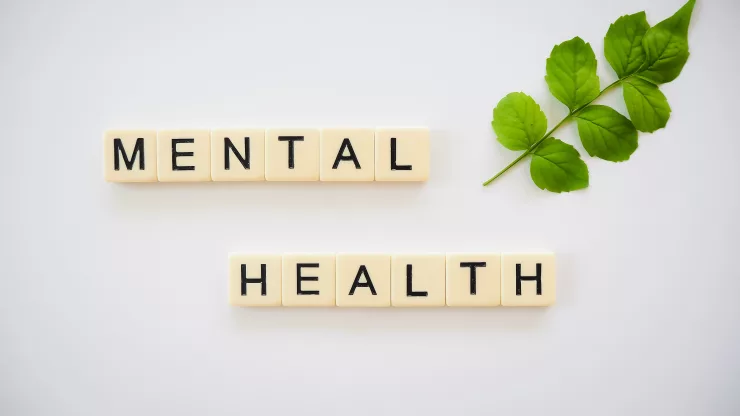Understanding Anxiety
Anxiety is a common mental health issue that affects millions of people worldwide. It can cause feelings of fear, worry, and panic, which can significantly impact one’s quality of life.
While anxiety can be challenging to overcome, there are tried-and-tested happiness and well-being strategies that can help manage symptoms and improve overall mental health.
Jump to Section
Mindfulness: A Powerful Tool for Beating Anxiety
Mindfulness is a popular technique used to manage anxiety. It involves being fully present in the moment and focusing on one’s thoughts and feelings without judgment.
Practicing mindfulness can help reduce anxiety symptoms by promoting relaxation, improving mood, and increasing self-awareness.
Some mindfulness techniques include deep breathing exercises, meditation, and body scans. These techniques can be practiced anywhere and at any time and can significantly improve one’s mental health.
Here are some tips to help you practice mindfulness:
- Start small: Begin with short, five-minute sessions and gradually increase the time as you become more comfortable.
- Eliminate distractions: Find a quiet space where you can focus on your thoughts and feelings without interruption.
- Practice regularly: Make mindfulness a habit by practicing every day, even if it’s only for a few minutes.
Exercise: How Physical Activity Can Boost Your Mood
Exercise is an effective way to manage anxiety and improve overall mental health. Physical activity releases endorphins, which are natural chemicals that promote feelings of happiness and well-being.
Exercise can also help reduce stress and tension, improve sleep quality, and boost self-esteem.
Here are some tips to help you incorporate exercise into your daily routine:
- Find an activity you enjoy: Whether it’s running, swimming, or yoga, choose an activity that you enjoy and look forward to doing.
- Start small: Begin with short, 10-15 minute sessions and gradually increase the time and intensity as you become more comfortable.
- Make it a habit: Schedule exercise into your daily routine and make it a priority.
Social Support: Building a Strong Network of Relationships
Social support is crucial for managing anxiety and improving mental health. Having a strong network of relationships can provide a sense of belonging, reduce feelings of isolation, and improve overall well-being.
Here are some tips to help you build a strong network of relationships:
- Reach out to others: Join clubs, groups, or organizations that align with your interests and values.
- Nurture existing relationships: Spend time with friends and family members and make an effort to stay connected.
- Seek professional help: Consider seeking professional help if you’re struggling to build or maintain relationships.
Sleep: The Importance of Getting Enough Rest
Getting enough sleep is essential for managing anxiety and improving overall mental health. Lack of sleep can increase feelings of stress and tension, reduce cognitive function, and negatively impact mood.
Here are some tips to help you get enough rest:
- Establish a sleep routine: Go to bed and wake up at the same time every day, even on weekends.
- Create a sleep-conducive environment: Make sure your bedroom is cool, dark, and quiet.
- Avoid caffeine and electronics before bed: Avoid caffeine and electronic devices, such as phones and computers, before bed, as they can interfere with sleep.
Nutrition: How Eating Well Can Benefit Your Mental Health
Eating a well-balanced diet is essential for managing anxiety and improving mental health. A diet rich in fruits, vegetables, whole grains, and lean protein can provide essential nutrients that promote brain function and improve mood.
Here are some tips to help you eat well:
- Choose nutrient-dense foods: Choose foods that are high in nutrients and low in calories, such as fruits, vegetables, whole grains, and lean protein.
- Limit processed foods: Avoid processed foods that are high in sugar, salt, and unhealthy fats.
- Stay hydrated: Drink plenty of water throughout the day to stay hydrated and promote brain function.
FAQ: Answers to Common Questions About Managing Anxiety
How long does it take to see results from mindfulness?
It can take several weeks or months of regular mindfulness practice to see significant results. However, many people report feeling more relaxed and less anxious after just a few sessions.
How much exercise is needed to manage anxiety?
The amount of exercise needed to manage anxiety can vary depending on the individual. However, most experts recommend at least 30 minutes of moderate-intensity exercise, such as brisk walking or cycling, most days of the week.
Can social media cause anxiety?
Social media can contribute to feelings of anxiety and stress, particularly if it’s used excessively or if it causes feelings of comparison or inadequacy. It’s essential to use social media mindfully and limit use if it’s causing negative emotions.
Can diet affect anxiety?
Yes, diet can significantly impact anxiety symptoms. Eating a well-balanced diet that’s high in nutrients and low in processed foods can help manage anxiety and improve overall mental health.

With a deep passion for personal development, Ben has dedicated his career to inspiring and guiding others on their journey towards self-improvement.
His love for learning and sharing knowledge about personal growth strategies, mindfulness, and goal-setting principles has led him to create My Virtual Life Coach.
Contact Ben at [email protected] for assistance.




